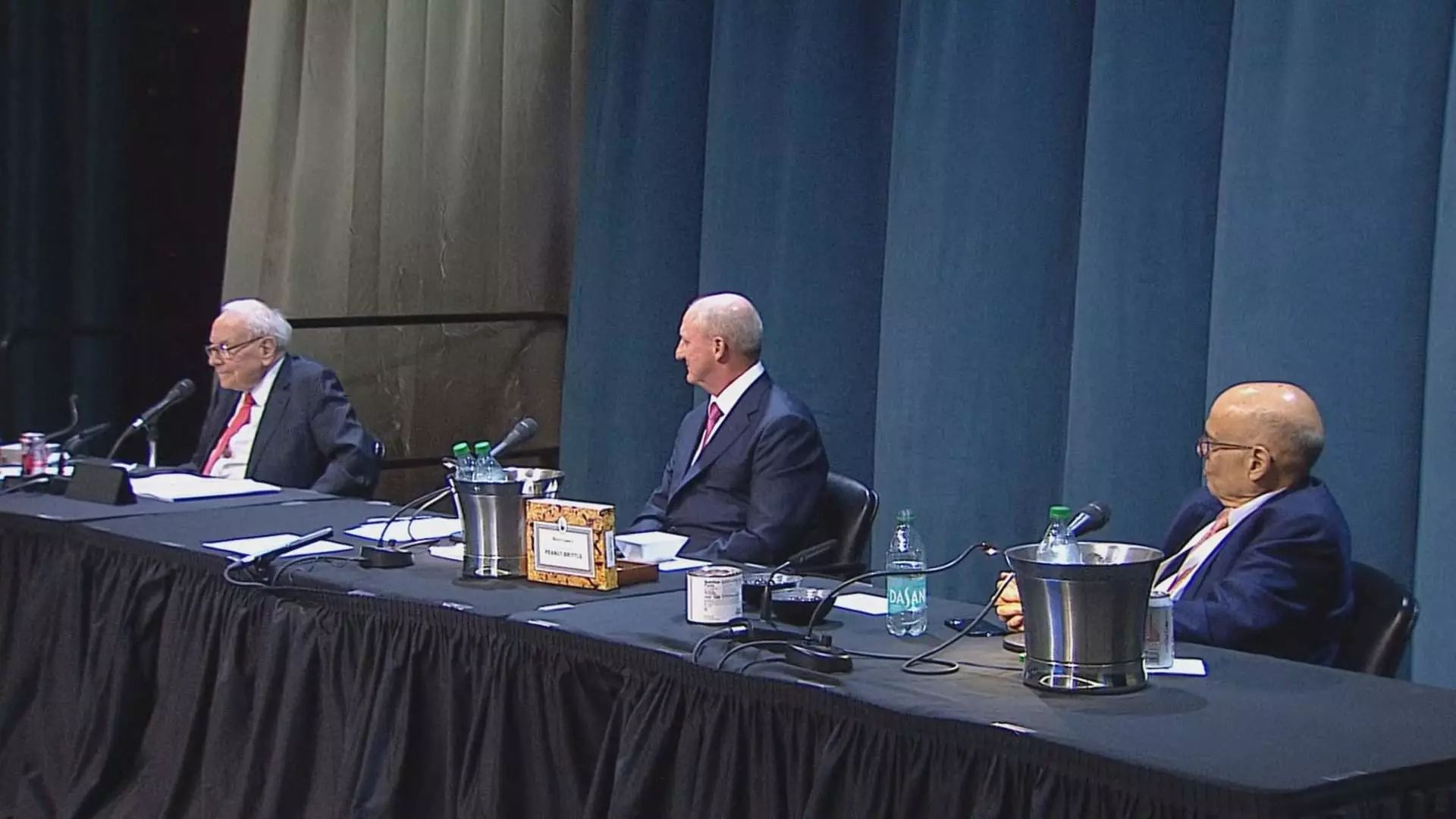The age of Warren Buffett is nearing its conclusion, and with it comes an inevitable shift in the landscape of investment philosophy and strategy. As he prepares to step down from his role as CEO of Berkshire Hathaway at the end of 2025, his insightful reflections during this year’s annual meeting serve as a touchstone for investors and business enthusiasts alike. Dubbed “Woodstock for Capitalists,” Buffett’s gathering has always provided a platform for his perspectives on market trends, investment strategies, and even life lessons. As we look forward to a future without the Oracle of Omaha, several key takeaways from this pivotal year stand out.
Real Estate vs. Stocks: A Candid Comparison
Buffett’s view on real estate has been clear: the simplicity and efficiency of the stock market outshine the cumbersome complexities of property transactions. He bluntly articulated that real estate is often marred by “lengthy negotiations,” and the involvement of multiple parties makes it a less appealing investment. “You can do billions of dollars worth of business totally anonymous in five minutes,” Buffett remarked, highlighting the seamless nature of stock trading compared to the intricate dance of real estate dealings. This candid revelation might ruffle some feathers among real estate advocates, yet it underscores an essential tenet of Buffett’s investment philosophy—the value of time and simplicity in decision-making.
Traditionally, many view real estate as the bedrock of a stable asset portfolio, assuming that bricks and mortar inherently provide security against volatility. However, Buffett’s argument raises a crucial question: is it feasible to redefine perceived stability in an era dominated by rapid technological advancements and a flexible market environment? In today’s fast-paced economy, perhaps the ability to adapt and act quickly is more important than the supposed safety of traditional asset classes.
Japan’s Trading Giants: A Lesson in Serendipity
Buffett’s confession about his discovery of Japanese trading companies offers poignant insight into the world of investing. Finding value in unexpected places is not a new concept among seasoned investors, but Buffett’s method of stumbling upon these opportunities through a simple handbook of Japanese corporations emphasizes a critical point: diligent research can often yield outsized results. His investments in Mitsui, Mitsubishi, Sumitomo, Itochu, and Marubeni represent not only financial stakes but also a gamble on future economic relationships between the two nations.
Buffett’s strategy challenges conventional wisdom that emphasizes exhaustive analysis in decision-making. Instead, through his anecdote, he illustrates the power of serendipity combined with preparedness. This compelling juxtaposition invites investors to open their minds to potentially lucrative options lying outside of traditional boundaries, thereby encouraging a more diversified approach to their portfolios.
Quality Over Quantity: The Eight Ideas Philosophy
In a world inundated with information, Buffett’s assertion that Berkshire Hathaway’s greatest successes came from just a handful of investments shifts the focus back to the essence of valuable insights: “If you think you can get an idea a day… forget it.” This statement is a clarion call for investors to cultivate patience and discernment rather than succumb to the incessant noise of market trends. The idea of waiting for the right opportunity resonates deeply in a world obsessed with speed and instant gratification.
Buffett’s philosophy challenges the prevailing mindset that equates activity with success. In an age where many believe they must constantly engage with their investments, Buffett is a refreshing reminder that true acumen lies in selecting the right moment to act, rather than merely acting often.
The Golden Goose of Insurance Float
Buffett proudly extolled the virtues of Berkshire Hathaway’s insurance float—a concept that represents the temporary funds held between premium collection and claims payouts. This phenomenon, which he dubbed “absolutely free money,” points towards a robust business model that has the potential to yield long-term financial growth. Buffett’s understanding of float as a tool invites a deeper exploration into alternative financing methods and investment structures that could bolster other sectors undoubtedly interested in leaning on this principle.
Moreover, his candid acknowledgment of fluctuating underwriting performance introduces an element of realism into his perspective. Instead of portraying a perfectly rosy picture, Buffett reminds investors of the inherent risks that accompany lucrative opportunities, urging them to adopt a long-term outlook despite occasional setbacks.
Beyond Income Statements: The Eye for Balance Sheets
Possibly one of Buffett’s most underrated insights revolves around the importance of balance sheets over income statements—a distinction that might seem elementary to him but is often lost in the clutter of financial jargon. The wealth of information contained within a company’s balance sheet is invaluable, offering a snapshot of an organization’s financial health. By prioritizing this component of financial analysis, Buffett challenges the conventional focus of Wall Street on mere profit margins and revenue generation.
Investors, especially those aligned with the center-right wing liberalism perspective, might take this to heart as an argument for responsible business practices. The sustainability of any corporation is heavily reliant on its ability to maintain a strong balance sheet, indicating a capacity to weather economic storms without sacrificing long-term viability. This call to deeper analysis reinforces the notion that good governance and sound financial foundations are more vital than ever in a world overrun with rapid changes and potential pitfalls in corporate America.

